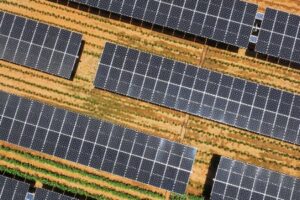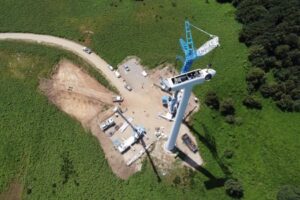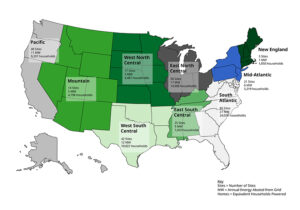Can the White House stop China’s clean energy dominance? — This Week in Cleantech


(Photo by Markus Spiske on Unsplash)
This Week in Cleantech is a new, weekly podcast covering the most impactful stories in cleantech and climate in 15 minutes or less. Produced by Renewable Energy World and Tigercomm, This Week in Cleantech will air every Friday in the Factor This! podcast feed wherever you get your podcasts.
This week’s episode features Kelly Livingston of ABC News who covered the EPA’s new vehicle standards meant to spur the adoption of electric and hybrid vehicles.
This week’s “Cleantecher(s) of the Week” are Michael Tekabe, chief operating officer, and Hayat Bedane, engineering lead at Kubik, an Africa-based startup.
The Biden Administration is concerned that China’s subsidized clean energy exports are destabilizing global markets, hurting firms and workers around the world. On Wednesday, Treasury Secretary Janet Yellen said she plans to raise the overcapacity issue with her Chinese colleagues when she visits Beijing in the coming weeks. She argued that it is not economically responsible for one country to dominate global supply chains around solar, EVs, and lithium-ion batteries.
Secretary Yellen spoke at a Suniva solar cell factory in Georgia that had shuttered due to competition from cheap Chinese panels, but has now reopened because of the Inflation Reduction Act.
At CERAWeek by S&P Global in Houston, oil and gas industry executives downplayed their belief in a clean energy transition, despite public statements suggesting otherwise. 30% of oil, 50% of gas, and 80% of coal reserves must remain in the ground to limit global warming to 2°C, yet last week Shell and BP both announced they will scale back their plans to reduce emissions.
The Biden Administration announced $6 billion in grants for 33 projects that will help cut pollution from hard-to-decarbonize industries such as aluminum, cement and concrete, chemicals, iron, steel, and food and beverage.
The funding will also be allocated toward the first new U.S. aluminum smelter in 45 years. This will revive declining aluminum production used for solar panels, semiconductors and defense applications, and bring in about 1,000 new direct jobs for United Steelworkers.
The Biden administration said this grant will help eliminate over 14 million metric tons of carbon dioxide pollution annually — equal to 3 million gas-powered cars.
New England’s last two coal plants, Merrimack and Schiller stations in New Hampshire, are set to close by 2025 and 2028. The plants will be converted into solar farms and battery units that will store electricity generated from wind turbines off the Atlantic Coast. In the last few years, the two coal plants have only operated intermittently during peak periods. The agreement resolved a lawsuit from the Conservation Law Foundation and the Sierra Club about the hot water the plants were discharging into a nearby river.
To cut carbon pollution from gasoline-powered cars and light trucks, President Biden’s new EPA rule requires automakers to increase their EV and plug-in hybrid vehicle sales. Stricter EV requirements won’t happen until 2030 to give the market and supply chains time to catch up.
This will prevent 7.2 billion metric tons of carbon pollution through 2055, and 2,500 premature deaths from air pollution annually starting in 2055.
Help make This Week in Cleantech the best it can be. Send feedback and story recommendations to [email protected]. And don’t forget to leave a rating and review wherever you get your podcasts.
Join us every Friday for new episodes of This Week in Cleantech in the Factor This! podcast feed, and tune into new episodes of Factor This! every Monday.
This Week in Cleantech is hosted by Renewable Energy World senior content director John Engel and Tigercomm president Mike Casey. The show is produced by Brian Mendes with research support from Alex Petersen and Clare Quirin.




